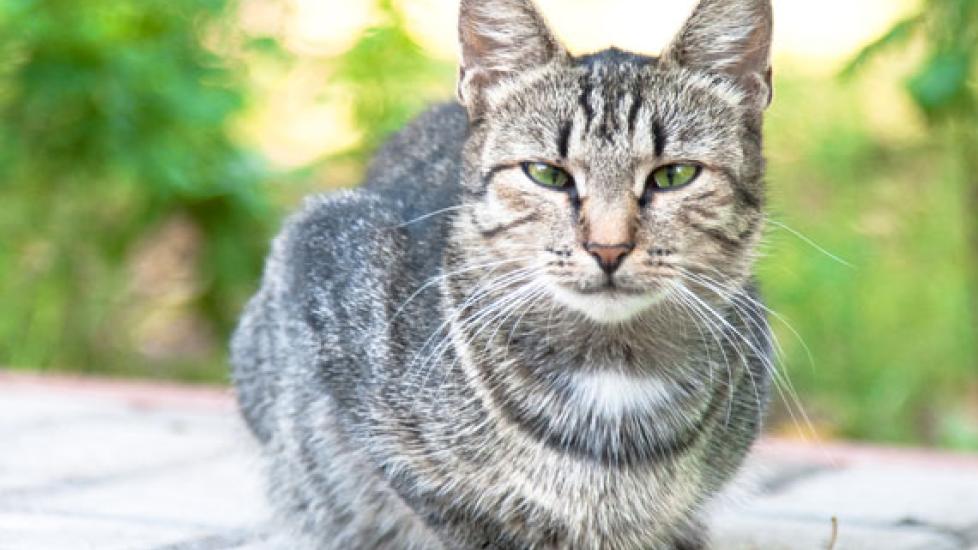Senior Cats Need More Calories
Anybody out there have an old, skinny cat? Veterinarians see them on a daily basis. Sometimes we reach a causative diagnosis — kidney disease, hyperthyroidism, diabetes mellitus, cancer, and gastrointestinal disorders are all common culprits. At other times, however, a cat may lose weight but appear to be normal in all other regards. What’s going on in these cases?
Of course it’s always possible that a health work-up missed something. For example, a cancer may be too small to find, GI disease will often go undiagnosed without biopsies, or kidney function may be declining but not yet reached the point where blood work and/or a urinalysis are abnormal. Putting those issues aside, a cat’s weight loss can simply be a result of age related changes in physiology. It turns out that cats need to take in more calories when they are over the age of 11 or 12 in comparison to the needs of younger adults.
Kittens need a lot of calories to support their growth and development, but those needs dramatically drop once they reach adulthood, particularly if they are spayed or neutered. If intake isn’t adjusted accordingly, many individuals will become overweight. But things start to change around the age of 11 or 12. About this time, a cat’s ability to digest fat starts to decline. Fat is the most calorie-dense nutrient, so this can have a major effect on the GI tract’s ability to extract energy (calories) from food. To make matters even worse, 20 percent of cats over the age of 14 have a reduced ability to digest protein. Put these two conditions together and an individual will lose both fat and muscle mass. The loss of muscle mass is especially concerning because animals who suffer from it are at increased risk of illness and death.
We have more than just anecdotal evidence of the widespread nature of the “old skinny cat” epidemic. Studies show that 15 percent of cats over the age of 12 have a body condition below the ideal, and cats who are over 14 years of age are 15 times more likely to be skinnier than they should be.
Based on these findings, it makes sense to reassess a cat’s diet when he or she reaches 11 or 12 years of age:
- If your cat is overweight, a reduced calorie diet is still in order. Experience and research has shown us that feeding restricted amounts of a high protein, canned food tends to be the best option for promoting weight loss in cats.
- If your cat has an ideal body and muscle condition score and the scale shows that his or her weight is stable, I’d recommend you continue with your current feeding regimen, but be vigilant in watching for any changes.
- If your older cat has a lower than ideal body and muscle condition score, switch to a highly digestible diet that has a greater caloric density than what you are currently feeding.
Ask your veterinarian to help you determine which particular food might be best for your cat based on his or her individual needs.

Dr. Jennifer Coates
Source:
Overcoming Challenges in Feline Nutrition, Part 1: Meeting the Challenge: Multiple Cats, Multiple Needs. Margie Scherk, DVM, DABVP. American Animal Hospital Association Web Conference. August 11 – 24, 2014.
Image: Yulia Simonova / Shutterstock
